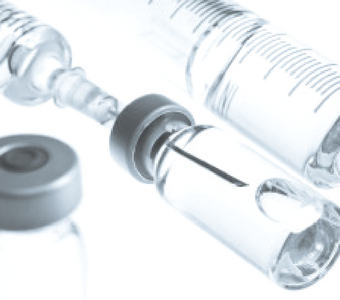Questcor Pharmaceuticals (NASDAQ:QCOR) shares fell roughly 8% on Friday following an update from Aetna (NYSE:AET) regarding the insurer’s coverage of QCOR’s lead product, H.P. Acthar Gel (or Acthar). The update reiterated a prior bulletin that Aetna would only reimburse its patients for Acthar use in the treatment of infantile spasms (IS, or West syndrome), and not for any of the drug’s numerous other approved indications. Given that nothing new surfaced in the recent Aetna release, Friday’s negative reaction should be seen as temporary, as fundamentals remain solid with no other health insurers negatively changing coverage guidelines since Aetna’s initial update in mid-September. In fact, UnitedHealth Group (NYSE:UNH), which reimburses the largest percentage of Acthar prescriptions, clarified its guidance in early October, stating that key indications for the drug are all deemed “medically necessary” in certain patients.
Visibility on Acthar prescriptions expected soon and could send shares sharply higher. PropThink had an opportunity to speak with Questcor on Friday, and management reiterated that insurance processing of Acthar prescriptions remains as it was before Aetna’s bulletin. Each Acthar prescription is reviewed and processed one at a time. QCOR stopped publishing Acthar prescription trends on a monthly basis in October, making it harder, if not impossible, to gauge how the drug is doing in terms of sales and growth. IMS Health, the leader in prescription data, is just gaining access to Acthar prescriptions, as a contractual “block” on data from Curascript is now expiring. Curascript is the sole specialty pharmaceutical supplier that distributes Acthar Gel. As a result, Acthar trends could become visible again later this year or in early 2013 through IMS Health’s prescription data. We believe the company is being selective about releasing Acthar prescription trends going forward, with the official word from Questcor that the calendar is not driving them with regard to releasing Acthar script data. Given the company’s response, and our belief that management would want to put their own prescription trend data and analysis out in front of the IMS Health data, we would not be surprised to see an update on Acthar prescription trends over the next couple of weeks. Should unit volume of the product demonstrate flat to higher growth, we believe QCOR shares will react very favorably. Flat growth justifies significant cash flow and a higher valuation than where the stock currently trades. For example, using a 4x sales multiple on Acthar’s annual sales run-rate from 3Q 2012 ($560M) implies a market cap of $2.24 billion, or $37 per share. Of course, growth off of the current annual sales run-rate suggests this stock could rise even higher. PropThink’s prior article notes that QCOR could trade into the high-$30 range, and potentially into the mid-$40 range on strong growth trends. As a result, the recent dip in QCOR offers a major buying opportunity.
Questcor significantly expanding its sales force – a good sign. The market has been extremely sensitive to health insurance coverage for Acthar Gel since Aetna’s policy update caused the stock to sell-off more than 50% in September. PropThink covered the story then (read the report) and suggested a position based on weakness in the shares, given that QCOR remained fundamentally attractive despite the overdone selloff. On Questcor’s 3Q earnings call last month, shortly after the Aetna debacle, management noted no irregularities in Acthar prescription trends, and quarterly revenue grew 24% sequentially, indicating an annualized revenue run-rate of $560M. Aetna only reimburses for approximately 5% of Acthar prescriptions, therefore this single health insurance company is not in a position to seriously impact sales alone. Other health insurance companies backing reimbursement of the product, like United Healthcare and its Oxford division, is much more significant to Questcor’s top line. And since Aetna seems to stand alone in its efforts to restrict patient access to Acthar, Questcor’s comments that “patients with serious, difficult-to-treat medical conditions addressed by Acthar on-label indications have continued to have access to Acthar through commercial insurance, Medicare, Medicaid and other government programs” holds credibility. Supporting the outlook, Questcor’s website lists 52 new open sales positions with requisitions to hire these reps immediately. As of the 3Q earnings report, the company employed approximately 180 sales reps, suggesting that the hiring initiative will expand the sales force by 29%. We note that most of the job openings are in the rheumatology area, suggesting that the company’s base of current sales people is stable, and that the expansion targets areas that have significantly fewer reps (currently only ~15-20 reps in the rheumatology segment – originally a “pilot” program). To us, this indicates that business is good, and that there is opportunity to continue growing the Acthar franchise.
With short interest on QCOR remaining near 50%; the company continuing to buy back stock and poised to earn more than $4.00 a share next year; and Medicaid just starting to reimburse Acthar at reasonable prices; the bullish trend on QCOR should continue through the end of the year. The release of prescription trend data for Acthar could cause a major short squeeze if positive, and the company holds the cards as to when it may deliver this news in the next few weeks. Expect QCOR to recover the losses suffered on Friday, with the potential to trade comfortably into the $30 range by year-end.



